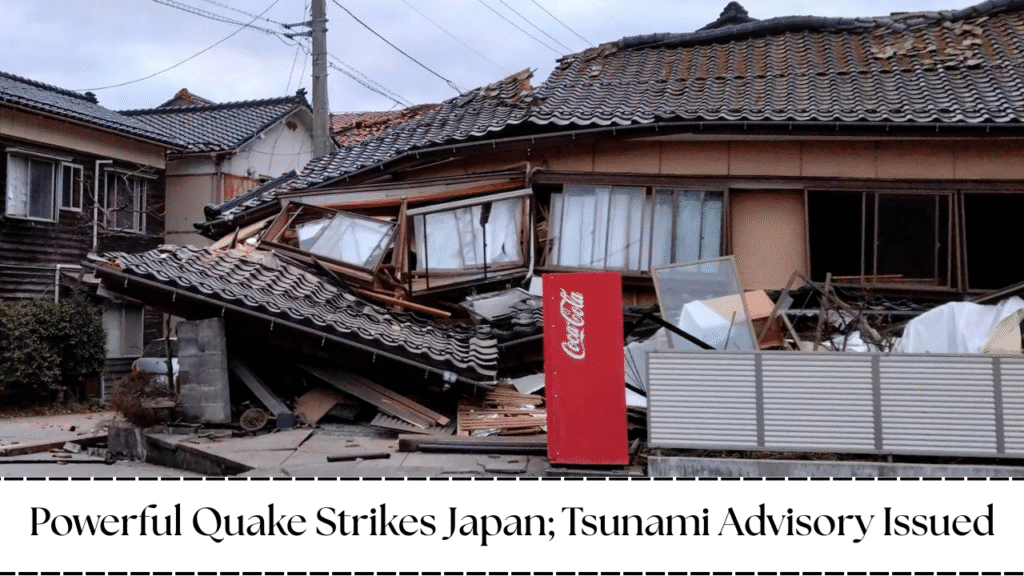In a startling turn of events, a powerful earthquake struck off Japan’s eastern coast, prompting authorities to issue an immediate tsunami advisory for coastal areas. Although detailed assessments are still underway, the tremor has already sparked concern among residents and global agencies.
What Happened?
According to early reports, the earthquake originated offshore in the Pacific region near Japan. While the exact depth and magnitude are being studied, experts confirm it was strong enough to be felt across multiple prefectures.
Coastal communities are currently on alert as officials monitor potential wave surges along the shoreline.
Tsunami Advisory: What It Means
A tsunami advisory signals that coastal areas may experience higher than usual waves.
Although not as severe as a tsunami warning, officials urge locals to:
- Stay away from beaches and seawalls
- Avoid low-lying coastal areas
- Follow updates from authorities
- Do not spread unverified information
Japan’s robust emergency systems are actively guiding residents to safety.
Impact and Early Response
So far, no major damage or injuries have been reported, but officials are still assessing remote areas.
Public transport in some coastal regions may face temporary delays as precautionary measures are enforced.
Emergency response teams have been deployed to:
- Support possible evacuation
- Survey infrastructure
- Monitor tsunami behavior
- Communicate updates in real time
Japan’s sophisticated disaster-management system is considered among the world’s best, helping minimize panic during events like this.
Japan’s Preparedness Saves Lives
Japan lies in one of the world’s most active seismic zones. Because of this:
- Buildings are designed to withstand strong quakes
- Schools and offices practice regular drills
- Early warning systems alert citizens within seconds
These measures often make the difference between crisis and catastrophe.
What We Know So Far
✔ Strong offshore quake
✔ Tsunami advisory issued
✔ No major injuries reported yet
✔ Situation under observation
✔ Residents urged to stay cautious
What Residents Should Do
To stay safe, authorities recommend:
✅ Move to higher ground if near the coast
✅ Listen to official announcements
✅ Keep an emergency kit ready
✅ Stay away from the ocean
Avoid rumors and rely on official agencies such as Japan Meteorological Agency (JMA).
International Reactions
Neighboring nations and global monitoring centers are tracking wave movement across the Pacific. So far, there is no indication of widespread danger beyond Japan, but scientists continue to analyze the event.
Looking Ahead
As Japan monitors the situation, experts are studying whether the quake could trigger aftershocks or further oceanic movements.
Citizens are encouraged to stay alert but calm.
The event once again highlights Japan’s resilience and ability to handle natural disasters with discipline and efficiency.
Stay tuned for more updates as information emerges.
Conclusion
The Japan Earthquake Tsunami Advisory situation remains dynamic, but early signs indicate that the country’s preparedness and rapid response may help prevent serious damage.
While coastal residents must stay cautious, authorities are working around the clock to ensure safety and provide timely updates.
read more- zkfundaweb.com

